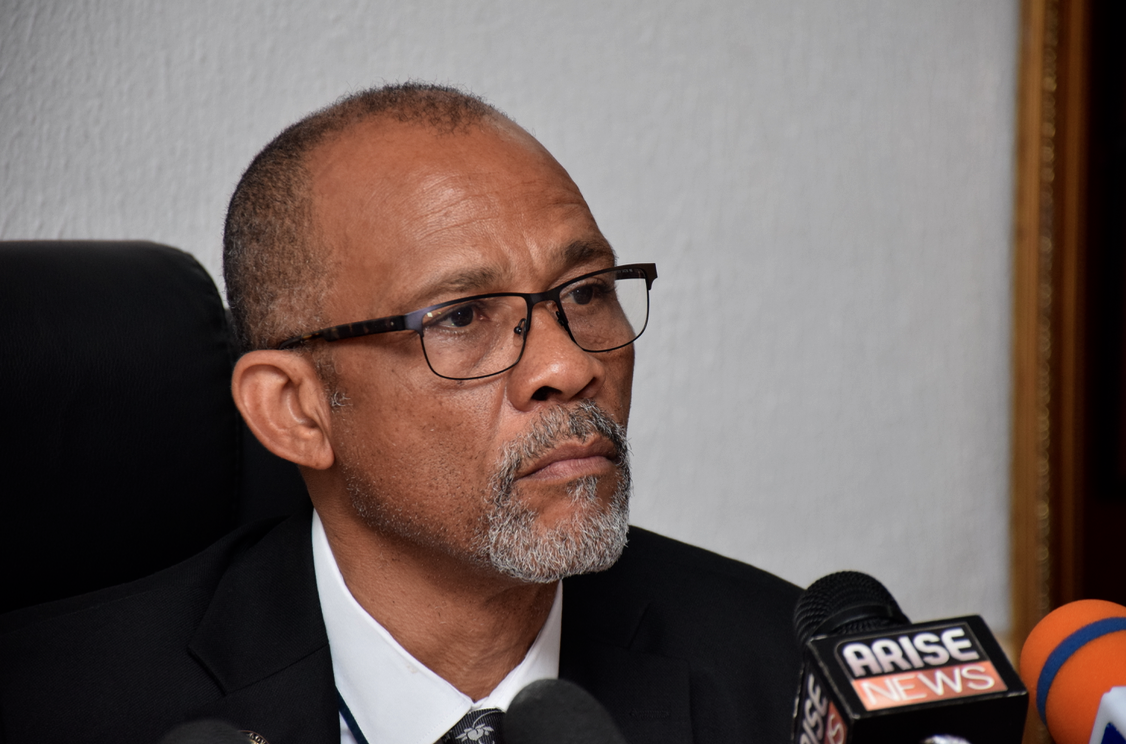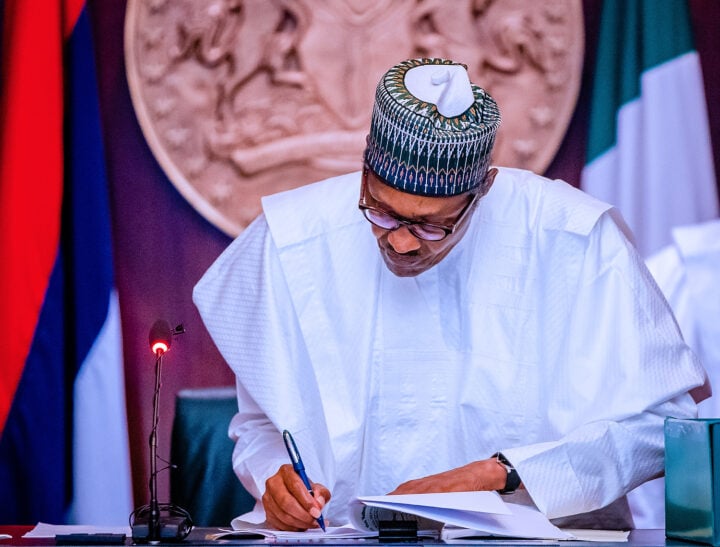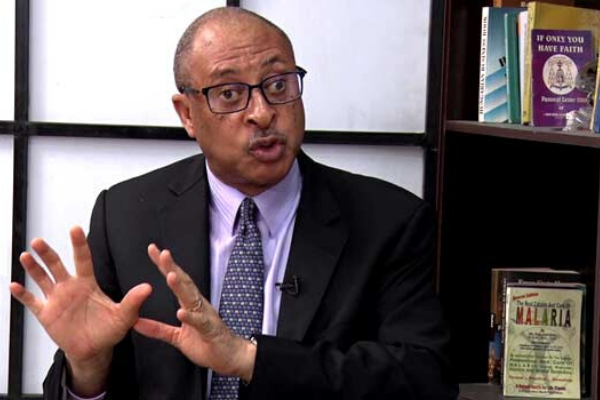Sale Mamman, minister of power, has launched moves to pay the disputed N13.5 billion claims to power plants owned by Deji Adeleke, TheCable can report.
Sepco-Pacific Energy Co Ltd, owners of Omotosho and Olorunsogo power-generating plants, and the Nigerian Bulk Electricity Trading Plc (NBET) had engaged in a prolonged exchange over the claims.
The disputed claims are in two parts — the N5.2 billion deducted from Sepco-Pacific Energy’s account by NBET in respect of foreign exchange differentials and another N8 billion “surplus payments” to the two GenCos.
NBET had stood its ground despite reported directives from Vice-President Yemi Osinbajo and a ruling by the power industry regulator, the Nigerian Electricity Regulatory Commission (NERC), that the company be paid.
Advertisement
The controversy is believed to have contributed to the non-renewal of the appointment of Marilyn Amobi as NBET MD.
MAMMAN: GOVERNMENT REPUTATION AT STAKE
In a letter to Sule Abdulaziz, the acting managing director of the Transmission Company of Nigeria (TCN), Mamman directed that NERC’s rulings “should be obeyed” on the claims by Sepco-Pacific Energy.
Advertisement
The letter was titled: “Re: TCN Disrespect For Sanctity Of Contract: Honourable Minister’s Urgent Intervention Required in Respect To Olorunshogo and Omotosho Power Plants & Others.”
Mamman wrote: “I refer to the captioned subject regarding operational changes by the Management of the Transmission Company of Nigeria (TCN) within the Nigerian Electricity Supply Industry (NESI). Specifically, it has been brought to my notice that in the months of March, April, May & June, the Final Settlement Statements issued by the Market Operator is (are) at variance with the signed PPA contracts of Olorunsogo and Omotosho Power Plants and Others, resulting in discordance within the market.
“The changes to the minimum capacity quantities of Olorunsogo and Omotosho Power Plants and non-compliance by TCN — a government-owned company — to NERC rulings, poses not only operational challenges but also reputational implications for the sector, and by extension, the Federal Government. Further still, the subsistence of such actions will invariably erode investor confidence in the market and may even undermine the legitimacy of our market reform efforts whilst bringing the Government into disrepute.
“I am very much interested in hearing the TCN Management’s position on why the TCN did not comply with the respective minimum contracted quantities of the power plants in question, under the signed PPAs. You are encouraged to furnish my office with the details, to enable the Ministry conduct an independent review of the different positions.
Advertisement
“In light of the above, and to stem further breakdown of contractual relations within the Nigerian Electricity Supply Industry (NESI) and avert costly embarrassment to the government, you are hereby directed to:
“(a) Abide by NERC’s ruling and resolution, as the regulator with regards to its obligation under the Power Purchase Agreement (PPA).
“(b) Provide a report detailing the position of TCN with justifications and any supplementary information that forms the basis of your position on the matter to enable the Ministry conduct an Independent review of the entire matter for effective settlement.
“(d) Note that, all the parties involved; the Regulator (NERC) and Nigerian Bulk Electricity Trading PLC (NBET) will be provided with opportunity to provide their documented position on the matter for an Independent review for the development of policy direction.
Advertisement
“Please be guided accordingly.”
The memo was dated August 17, 2019 but TheCable confirmed that the year was an error as the letter was only sent to TCN two weeks. There was no acting MD in August 2019.
Advertisement
Ministry sources informed TheCable that the memo is the first step in Mamman’s efforts to get the disputed sums paid to Sepco-Pacific Energy after the heated exchanged between the company and NBET.
The issue is currently before the NBET board, TheCable learnt.
Advertisement
WHAT’S IN DISPUTE?
Sepco-Pacific Energy is contending that NBET has been using the wrong calculations in arriving at what it should be paid for electricity delivered to the national grid by its two plants.
Advertisement
The company wants NBET to use the quantities in the power purchase agreements (PPAs), signed in 2013, and not the capacities in the final settlement statements (FSS) prepared by the Market Operator, the division of the TCN that issues market settlements and invoices due to market participants and service providers in the electricity supply industry.
NBET had, in a letter dated June 8, 2020, insisted that Clause 13.1 of the PPA provides for “[using] the quantities in the Settlement Statement of the Market Operator as the basis for the calculation and invoicing of Capacity Payment and Energy Payments, subject to correction in accordance with applicable rules or this Agreement”.
Amobi, now former MD, also quoted Rule 20.02.1c of the market rules as stating that “[a generation plant and the NBET] accept to adopt the Settlement data and quantities in the Market Operators Settlement Statement as contract quantities, in accordance with these Rules.”
By his letter, Mamman is understood to be putting pressure on TCN to alter the quantities in the FSS from March to June 2020 so that Sepco-Pacific Energy can be paid higher.
THE N13.5 BILLION CONTROVERSY
In September 2013, the plants entered into PPAs with NBET.
Under the PPAs, the base exchange rate to be used in calculating the payments was fixed at N157/$, although there was a provision for “true-up invoices” which would reflect the actual rate in invoicing the distribution companies.
However, NBET raised issues with the invoices, maintaining that Sepco-Pacific had wrongly used a different base exchange rate — N157/$ — and that the rate should be N169/$ for the invoices in question.
With a lower exchange rate, Sepco-Pacific would get more dollar value from the payments. The adjustment to N169/$ lowered its claims by N5.2 billion.
Sepco-Pacific contested NBET’s decision to use N169/$1 and escalated the matter to NERC.
NERC initially ruled in favour of NBET but then issued another determination in April 2017, saying it made a mistake.
NERC then direct NBET to use N157/$1, and that meant paying Sepco-Pacific the N5.2 billion in dispute.
Also in dispute is the N8 billion paid to Omotosho and Olorunsogo for power supplied to DisCos through the national grid.
Payments made to four plants — including the N8 billion to Omotosho and Olosunsogo — were above what was approved by President Muhammadu Buhari and NBET had insisted that it must be refunded as directed by the federal government.
In 2016, Olorunsogo had received $13,782,130 (N4,208,535,131.25, at the prevailing exchange rate) and Omotosho got $13,166,466.88 (N4,020,520,405.38) — in excess of what the president approved.
Following a reconciliation of accounts contained in a report dated May 23, 2019, NBET was directed by the federal government to deduct the overpayment to the four power plants, out of which Omotosho and Olorunsogo had to return over N8 billion.
Meanwhile, NBET also alleged that from May 1, 2018 to June 30, 2019, Sepco-Pacific was earning a premium of N200 million monthly and would have to refund over N15 billion as a consequence.
According to NBET, the amount will be used to “reduce” the indebtedness to Adeleke’s company.
In effect, Sepco-Pacific will now be owing rather than being owed — if its N13.5 billion claim is deducted from the premium of over N15 billion “premium” it earned for 13 months.
SEPCO-PACIFIC PROTESTS
In a letter dated May 4, 2020, Adeleke listed his grievances with NBET and threatened to head to arbitration in the UK.
His major grievances were that NBET refused to comply with NERC’s ruling that N157/$1 being used instead of N169/$1 and that NBET also refused to pay the N8 billion — which it had withheld following the presidential directive.
He also complained that with regards to the March 2020 invoice, NBET refused to use the quantities in the PPAs but opted for the capacities in the FSS issued by the MO to process the payment for the electricity delivered to the national grid by Olorunsogo and Omotosho.
Mamman’s letter directing TCN to use the quantities in the PPA rather than in the FSS tallies with the position canvassed by Adeleke in his letter to NBET.
MAMMAN SEEKS CONTROL OF NBET
Mamman had all along tried to bring NBET under the power ministry but President Muhammadu Buhari appointed Zainab Ahmed, minister of finance, as chairman of the board — interpreted to mean the bulk trader is now under her ministry.
However, Mamman is understood to have influenced the appointment of Nnaemeka Ewelukwa as Amobi’s successor.
In November 2019, Mamman had suspended Amobi and made Ewelukwa acting MD, but the suspension was upturned by the president.
A mild drama ensued in June when Mamman announced that Amobi was going on terminal leave so that Ewelukwa could take over immediately but Ahmed said Amobi would serve out her term till July 24.
Both claimed to be acting on presidential directives.
Amobi eventually remained in office till July 24.
Mamman also removed UG Mohammed as the MD of TCN and installed Abdulaziz in an acting position.







